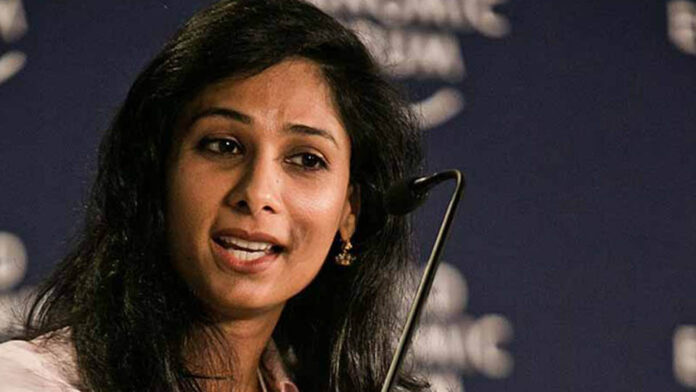By: Isuru Parakrama
July 22, World (LNW): Gita Gopinath, the Deputy Managing Director of the International Monetary Fund (IMF) and one of the most influential voices in global economics, is set to step down at the end of August to resume her academic post at Harvard University.
The announcement, which came as a surprise to many within the Fund, marks the end of a high-profile chapter in her distinguished career at the international lender.
Originally seconded from Harvard to take on a leadership role at the IMF, Gopinath had first joined the institution in 2019 as its inaugural female Chief Economist. In 2022, she was promoted to the role of First Deputy Managing Director, becoming the second-highest-ranking official in the organisation.
Her decision to return to academia is understood to be a personal one, and whilst the IMF has acknowledged her departure, a successor is yet to be named. The appointment will likely involve consultation with the U.S. Treasury, which traditionally wields influence over key IMF leadership positions.
The transition comes at a moment when the United States, under President Donald Trump, has been pursuing a dramatic recalibration of its global trade posture, including aggressive tariff regimes aimed at addressing trade imbalances.
During her tenure at the Fund, Gopinath played a central role in shaping its response to the COVID-19 crisis and was a leading voice on issues ranging from inflation and monetary tightening to the debt burdens of emerging economies. Her influence extended beyond Washington, with a recent visit to Sri Lanka underscoring her engagement with nations grappling with post-crisis recovery.
In Colombo, she cautioned against complacency in the face of ongoing global headwinds, such as rising trade barriers, fluctuating energy markets, and geopolitical instability in the Middle East. Gopinath stressed that for countries like Sri Lanka, maintaining disciplined fiscal policies would be essential to avoid backsliding into financial turmoil.
Reflecting on her career in earlier interviews, Gopinath often credited her early exposure to India’s economic reforms in the early 1990s as the catalyst for her interest in macroeconomics. Educated initially in Mysuru and later at Lady Shri Ram College in Delhi, she traced her academic journey through the challenges of India’s first major currency crisis, which inspired her pursuit of international finance.
Before her move to the IMF, Gopinath held the prestigious John Zwaanstra Professorship in International Studies and Economics at Harvard, where she will now return. Her academic work has been widely published in leading economic journals and continues to influence both scholarly debate and policymaking worldwide.
IMF Managing Director Kristalina Georgieva has expressed deep appreciation for Gopinath’s contributions, stating that a decision on her replacement will be announced in due course. As the Fund prepares for this leadership change, Gopinath leaves behind a legacy defined by intellectual rigour, global collaboration, and a deep commitment to evidence-based policy.

